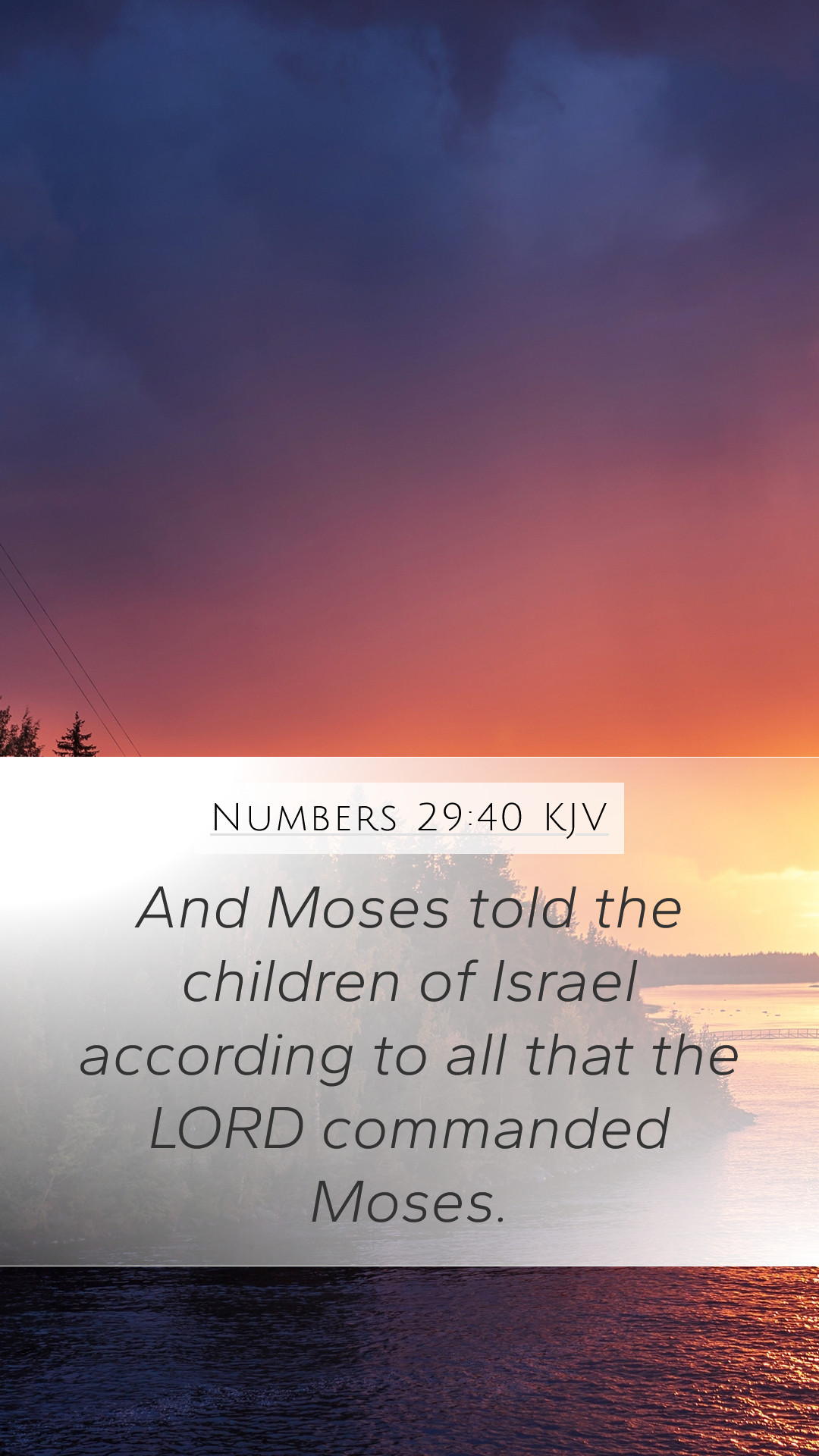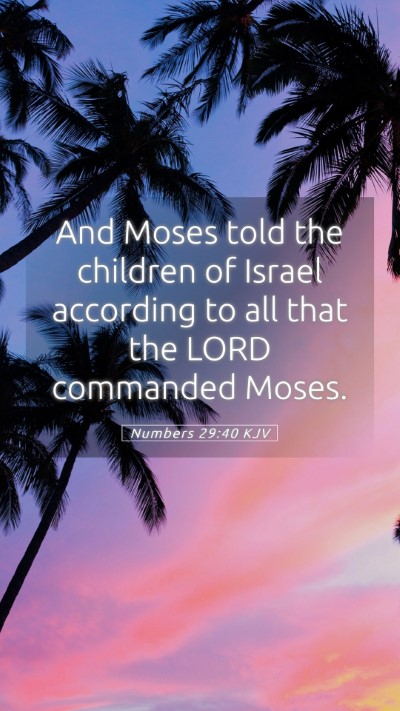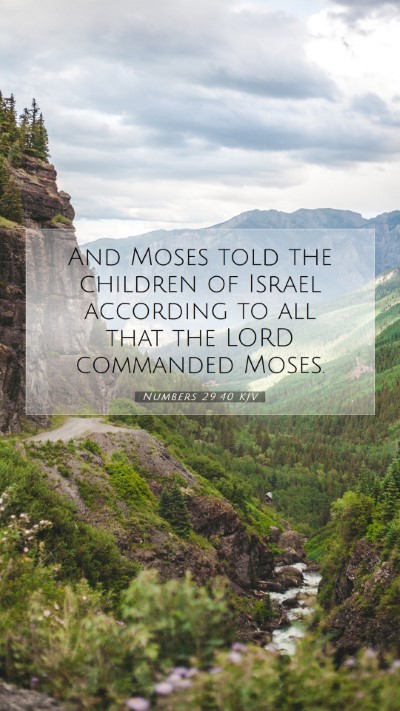Understanding Numbers 29:40
In this analysis, we delve into the Bible verse meaning of Numbers 29:40, exploring interpretations from respected public domain commentaries such as those by Matthew Henry, Albert Barnes, and Adam Clarke. This passage provides significant insights for Bible study groups and personal study.
Verse Context
Numbers 29:40 states:
"And Moses told the children of Israel according to all that the Lord commanded Moses." (Numbers 29:40, KJV)
This verse caps off a detailed account of sacrificial offerings during the Festival of Tabernacles, emphasizing the importance of obedience to God’s commands.
Summary of Commentaries
- Matthew Henry: Henry emphasizes the role of Moses as a mediator of God’s instructions, underscoring the necessity of following divine commandments to maintain a covenant relationship with God. He highlights the collective identity of the Israelites as they receive these commands, reinforcing the communal aspect of worship and obedience.
- Albert Barnes: Barnes elaborates on the significance of Moses conveying God’s directives, pointing out the importance of adhering to religious duties and offerings as a means of maintaining spiritual connection and accountability. He highlights that these commandments serve both ceremonial and moral functions for the community.
- Adam Clarke: Clarke interprets this verse within the broader narrative of Israel's journey and laws. He views the act of Moses communicating God’s will as a pivotal moment that strengthens the foundation of Israel's faith. According to Clarke, this underscores the reverence due to God in all aspects of life, particularly in worship and sacrifice.
Bible Verse Understanding
The understanding of Numbers 29:40 reveals the theological implications of divine instruction in the life of Israel. It emphasizes several aspects:
- Divine Communication: The necessity of hearing and obeying God's voice through intermediary leaders like Moses.
- Community Responsibility: The importance of collective worship practices, reinforcing the unity and shared faith of the Israelite community.
- Covenant Remembrance: This verse is a reminder of the ongoing covenant between God and Israel, highlighting the need for regular observance of God's commands.
In-Depth Scripture Analysis
Numbers 29:40 serves as a bridge to deeper Bible verse commentaries regarding obedience and worship:
- Historical Context: Understanding the rituals of ancient Israel allows for a better grasp of the societal and religious structures in place during Moses' time.
- Application to Daily Life: This verse encourages readers to reflect on how they listen to and apply divine guidance in their own spiritual practices and community engagements.
- Significance of Rituals: The passage highlights the enduring importance of religious rituals in affirming faith and community identity.
Biblical Exegesis of Numbers 29:40
When engaging in biblical exegesis of Numbers 29:40, scholars examine several key themes:
- Role of Moses: Moses is portrayed not just as a leader but as a pivotal figure who communicates God’s will, an essential role in the spiritual life of the people.
- Spiritual Obedience: The verse emphasizes the continuous need for Israel to comply with divine instruction as part of their covenant duties.
- Community and Individual Responsibility: The reciprocal nature of God’s commands and Israel’s obedience suggests a framework for both personal faithfulness and collective worship.
Related Bible Cross References
This verse connects to several other significant passages, including:
- Exodus 3:10: God’s call to Moses to lead His people.
- Leviticus 23:34: Command concerning the Festival of Tabernacles.
- Deuteronomy 5:31: The duty of Moses to instruct the people in God’s laws.
Conclusion
In closing, Numbers 29:40 serves as a crucial reminder of the importance of adhering to God’s commands through the mediators He appoints. This verse highlights key themes of collective worship, obedience, and community responsibility. Understanding this verse enriches one's Bible study insights and offers profound implications for applying biblical teachings in contemporary life.


